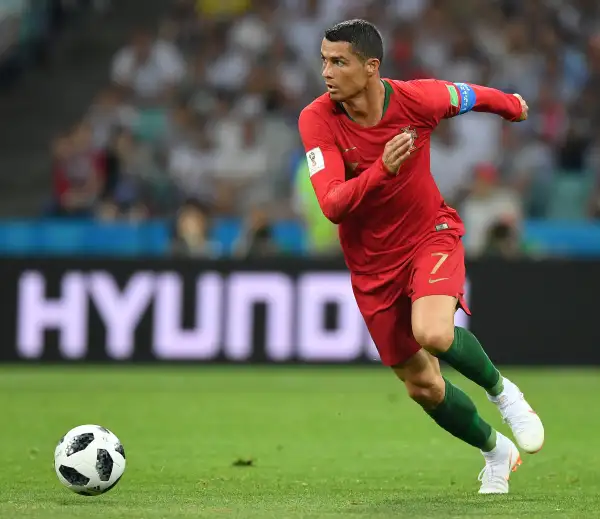Here's How Much Money World Cup 2018 Players Make

Lionel Messi, Cristiano Ronaldo, Neymar... you may know the names of soccer's biggest stars, but do you know how much they're getting paid to play in the 2018 World Cup?
As is typical with FIFA, the answer is complicated.
The international football federation is set to award $400 million total to the 32 teams competing for glory at the World Cup over the next month in Russia, according to the Associated Press. By the end of the tournament on July 15, one champion will take home a whopping prize of $38 million. The second and third-place teams will receive still-impressive checks for $28 million and $24 million, respectively.
Non-Equal Pay
Those are impressive figures, but the players aren't necessarily splitting the prize pots evenly. As USA Today reported back in 2014, awards are given to winning teams' national federations, which are then allowed to decide how to pay athletes at their discretion. That means the payoff for playing in the World Cup varies by country.
The German Football Association, for example, said in December that each of its players will get a bonus of €350,000, or about $400,000, if they win this summer's World Cup. The sums are staggered depending on how far the team makes it in the competition. If they get to the semi-finals, each player will pocket €125,000 ($145,000); if they only survive to the quarter finals, each player will get €75,000 ($87,000). There is no bonus for only making it past the first round.
The breakdown is different in Brazil, where each person will get €800,000, or roughly $930,000, if they emerge victorious from the World Cup, according to Reuters.
Spain's players are in the best position. If their team wins the title, each athlete will get €825,000 — the equivalent of more than $950,000.
You can definitely consider the bonuses a score: These payments come on top of the players' regular-season professional salaries, which in Ronaldo's case exceeds $60 million a year, according to Forbes. Each team also gets $1.5 million before the World Cup so they can prepare for the contest.
Pay Problems
But the money can cause drama. In 2014, disagreements over pay posed problems for a handful of African countries. Cameroon's team initially refused to board their flight to the World Cup four years ago because players believed their £61,000 bonuses were too low. The Nigerian squad boycotted a training session because they were afraid they wouldn't get paid. Ghana threatened to skip a game unless they got paid ahead of time in cash — a stunt that forced the government to put $3 million on a plane to Brazil.
This time around, neither Ghana nor Cameroon are in the World Cup. But FIFA did give Nigeria and four other nations $2 million advances so they could get any money disputes out of the way before the competition actually began.
Winning the World Cup isn't all about money. German Football Association President Reinhard Grindel told reporters last year that though the financial bonuses were admittedly attractive, "the sporting challenge is the main focus and not the economic aspect."
Then again, try telling that to Sepp Blatter, the former FIFA president who was accused of skirting the law after he gave himself a $12 million bonus for the 2014 World Cup.
